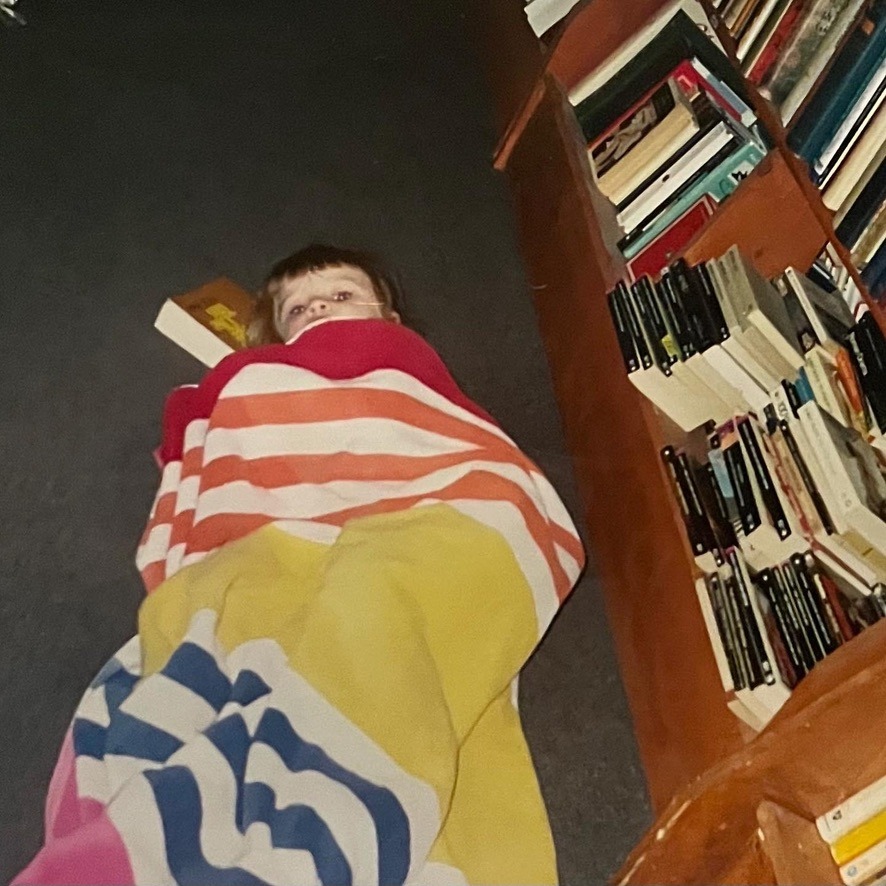A Sacred Space
When I tell people that my father owns a bookstore, they picture something akin to a Barnes and Noble: organized shelves with new releases at the door, friendly teen employees signing customers up for loyalty cards, maybe even a Starbucks for customers to sit down and enjoy their new book.
Jackson Street Booksellers, the sprawling, 6,000 square-foot book shop that I grew up in, is nothing of the sorts. My father and his then-girlfriend—a short-haired, chatty woman named Amanda—drove across the country in the Summer of 1993, buying books from library and estate sales. They curated a collection of used, rare, and out-of-print books to be housed in a small downtown storefront in my father’s hometown of Omaha.
What began as a one-room collection has grown so large that it has swallowed nearly a third of a city block downtown, overtaking two businesses throughout the years. The coffee shop and bike rental garage which once sat on either side of the bookstore evacuated, making way for books to cover the walls like vines—reaching into the crevices of each room; tangled amongst each other on the floor. The shelves reach near the top of the fourteen-foot ceiling, the top rows unreadable and unreachable without the assistance of a rickety stepladder. Walking through the single-file door feels like entering a different word: one in which people read books and collect them and care for them. It is also a reminder that those people still exist.
The entryway is crowded by a bulletin board showcasing months-old events and a shelf full of online orders packed in manilla envelopes to be picked up by the mailman. The narrow pathway opens into an expansive room of books upon books, obstructed only by the desk at which my father sits. The desk itself is massive—at least an eight-foot slab of dark oak—and completely covered in an array of things: books, of course, but also records, photographs, plastic cutlery, postcards, loose notes, and a singular two-foot-tall nutcracker with hollowed black eyes. The walls are covered in photographs and posters, some of me, some of lost friends, some of events from years past. When completing sales, the tax rate is calculated on an old-school calculator and each sale is noted in a spiral-bound notebook. The money is kept in a cash drawer—not connected to a register—and is freely spent on daily lunches for employees. It is surely an unconventional business model, but it has worked for nearly three decades.
It smells faintly of cigarette smoke, never mind the fact that no one has smoked inside of the building for years. Long past when it became illegal to do so, my father and his business partner would chain-smoke yellow American Spirits while surrounded by tens of thousands of books, tempting fate and fire. A cancer diagnosis and a few dozen reviews complaining of the stench led to the end of the indoor smoking era, but it's memory clings to the air and in between the yellowed pages of books left to sit on shelves for years.
You can find your way around by following creased, laminated signs taped to the sides of shelves or sometimes above them, ranging from ‘occult’ to ‘physics’ to ‘Arctic exploration’ to ‘military aviation.’ Books in each section are arranged by the author’s last name, but the shelves are so crowded that disheveled piles form at the bottom of each shelf and on top of each row. Despite the presence of at least 50,000 books in the sprawling shop, each employee has a remarkable ability to hear a title and walk through the winding shelves only to arrive at the correct section and grab the correct book.
The shelves do create something of a maze, almost suffocatingly close together at times to accommodate the ever-growing collection. The sheer volume of books can feel overwhelming or cathartic, depending on your propensity for mess. The real chaos exists in the two back rooms, separated from the rest with sheer curtains. Pull them back, and you will see even more books in varying states of disarray. Some are duplicates of titles that are already on shelves, stacked nicely. Others are thrown on top of piles of boxes so high that they block the emergency exit. In all of its mess, it is still something of a sacred space to me. I look back now and think that perhaps the bookstore played some role in my love for clutter.

Post a comment